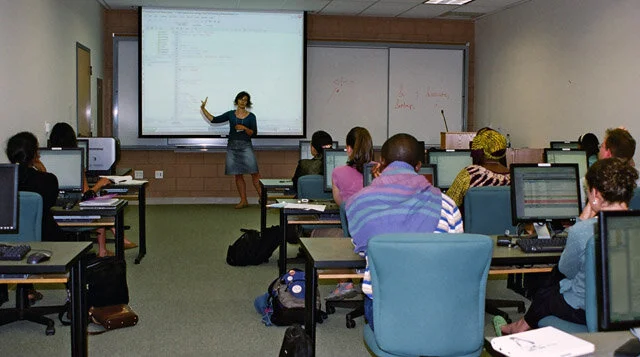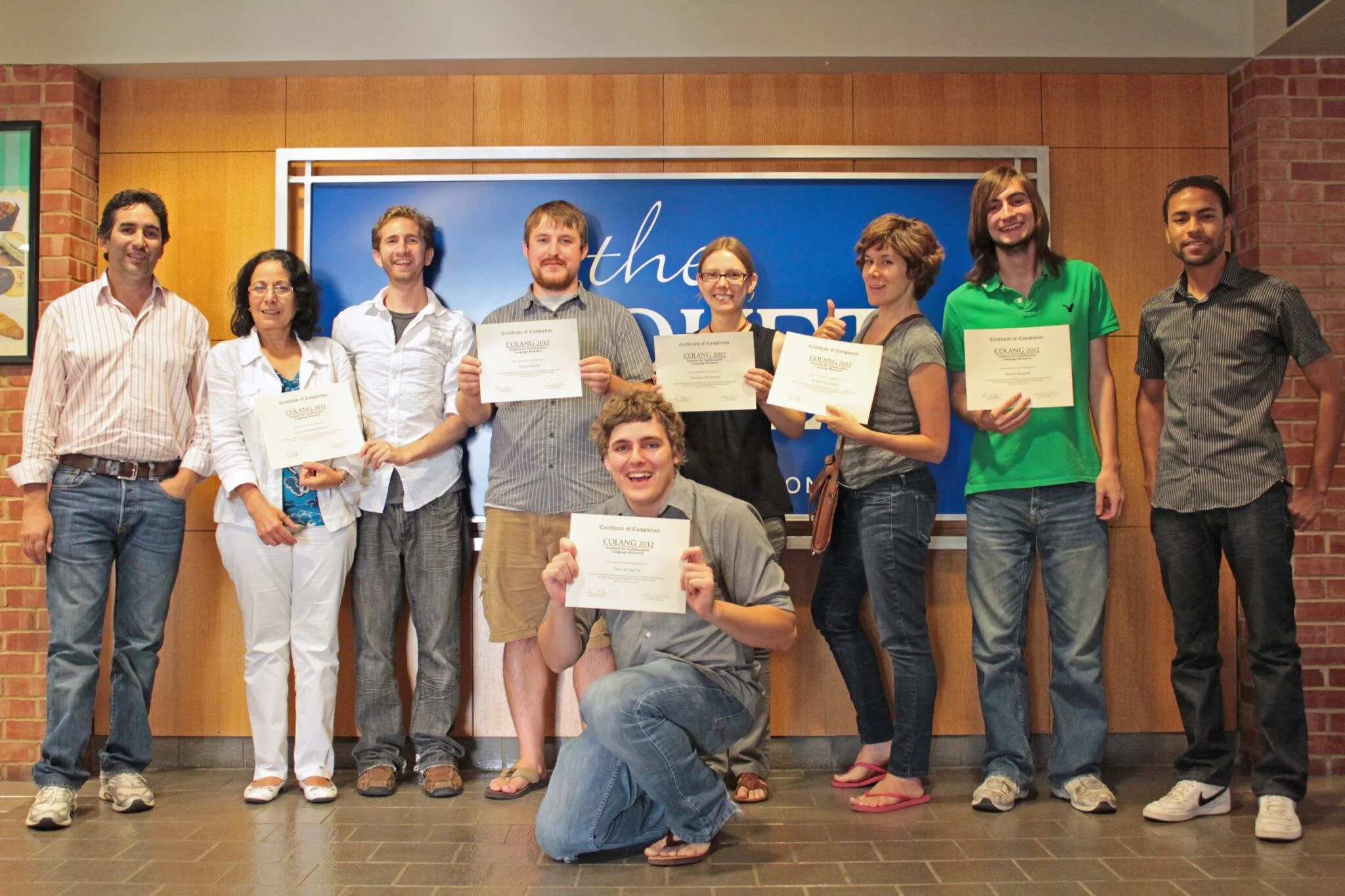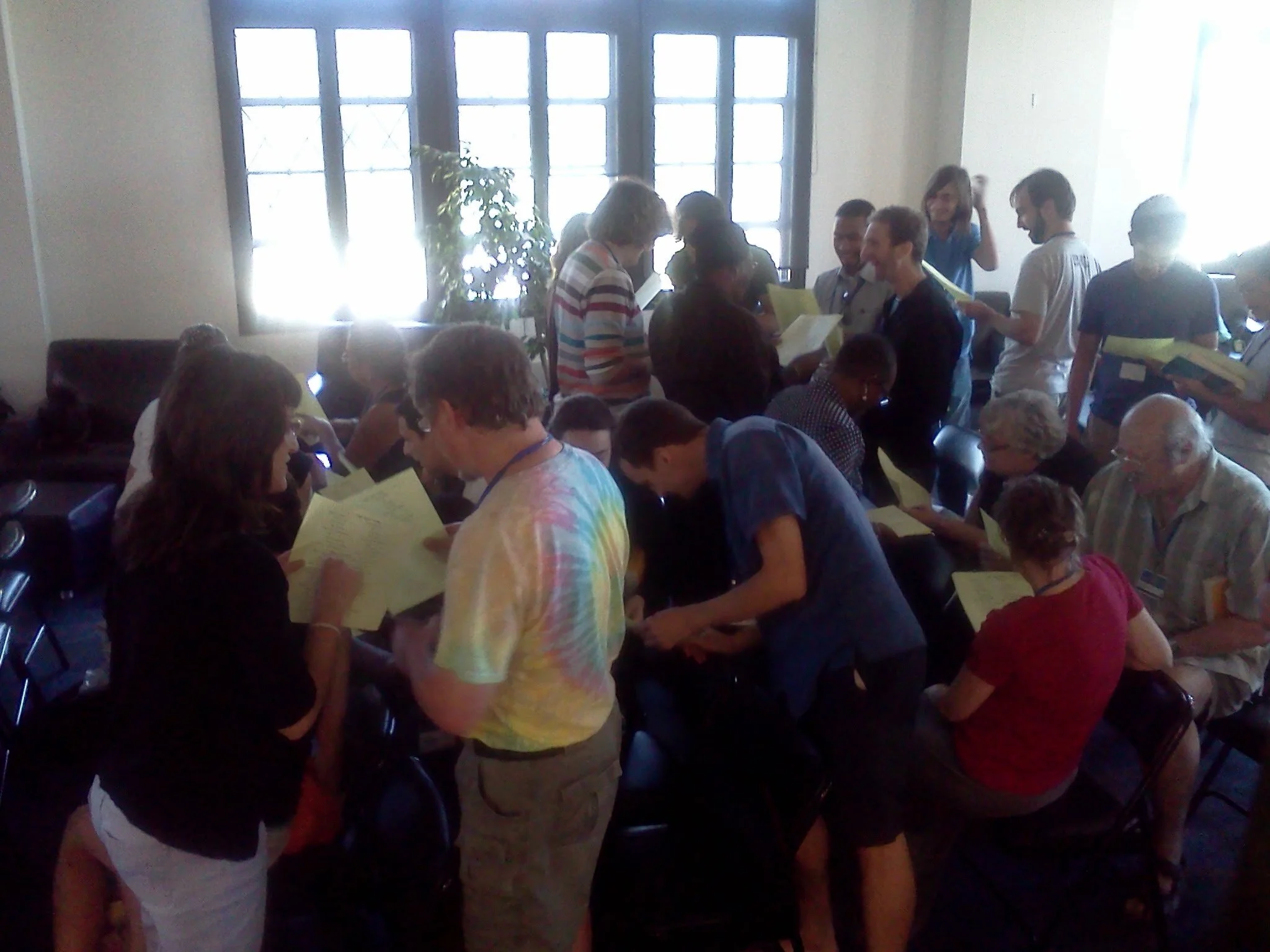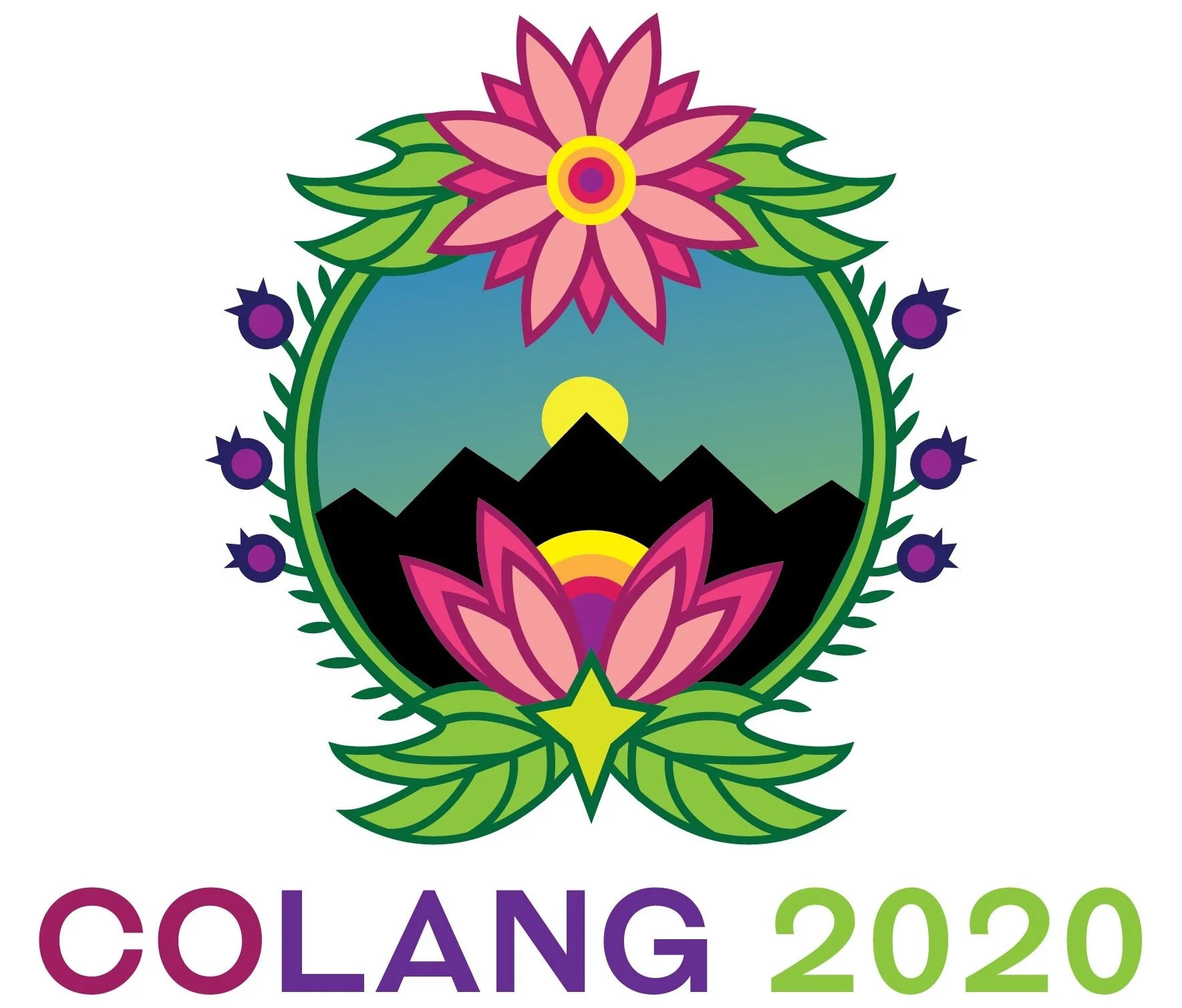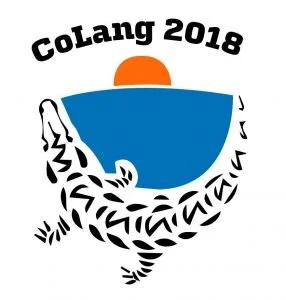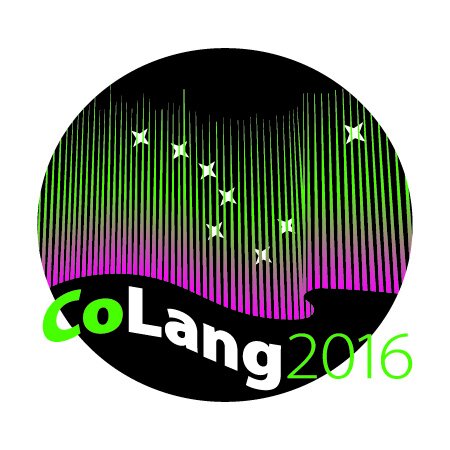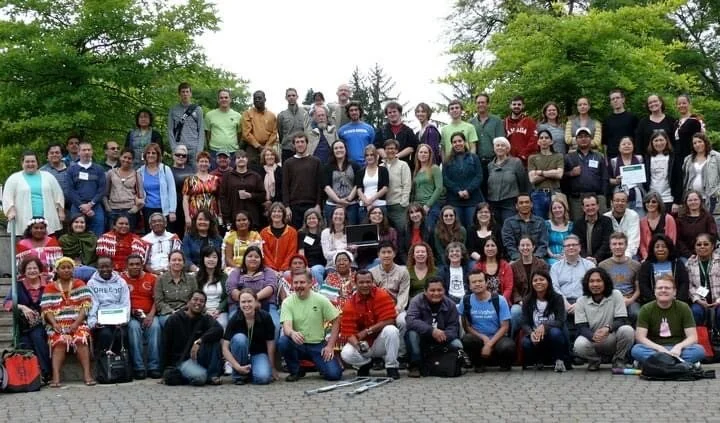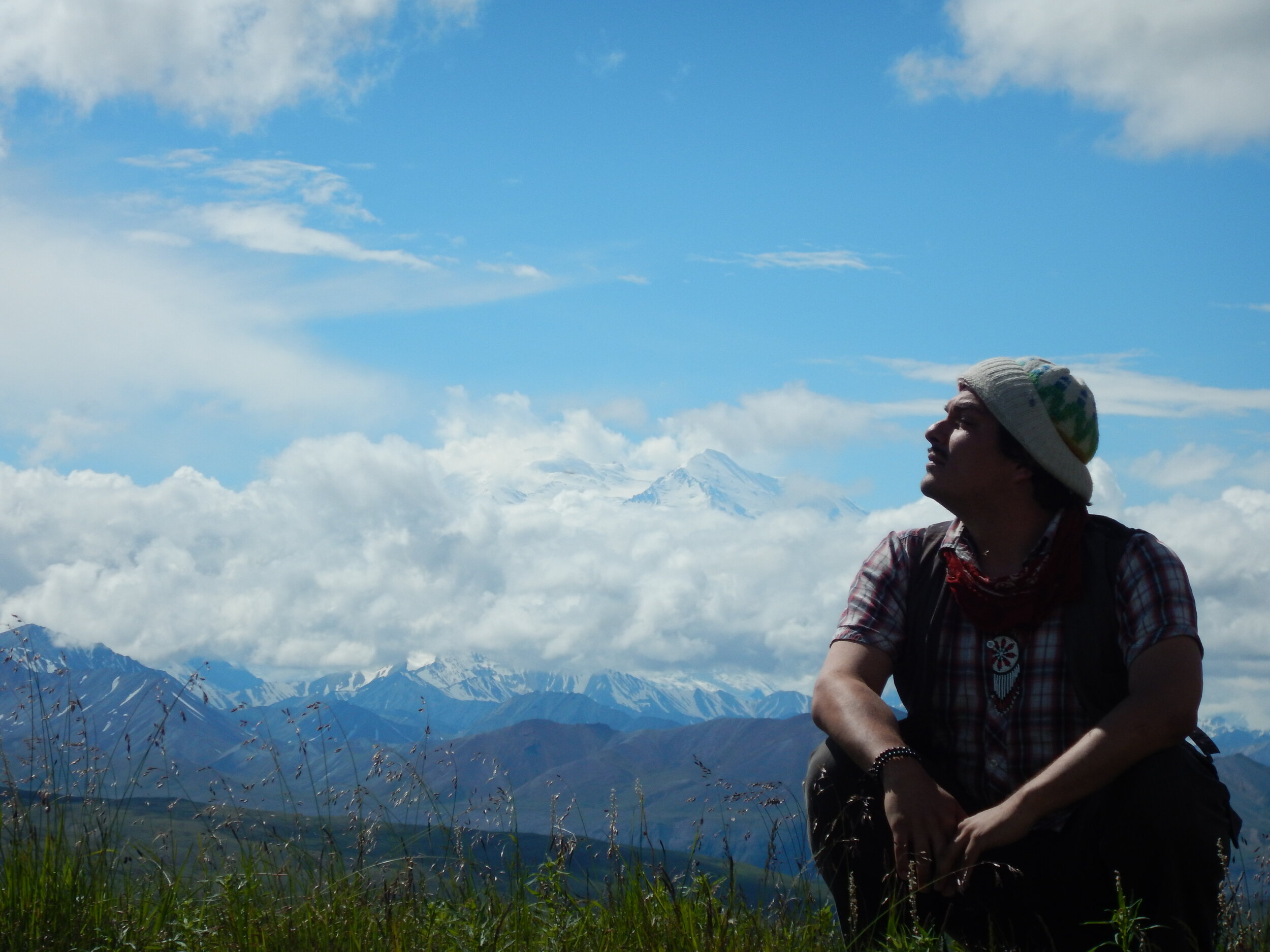
Workshops
ELAN workshop led by Andrea Berez-Kroeker in 2008
Workshops take place the first two weeks of every institute. Each workshop is scheduled in two-hour blocks for four days. While it varies from institute to institute, 5-8 different workshops may be offered per day. Some classes in the second week’s workshops introduce new topics, and some build on skills discussed in the first week. Some topics include training in introductory linguistics, language documentation and description, relevant technology, language reclamation, language acquisition and teaching, archiving, and ethics. All workshops are open to any participant.
CoLang aspires to be collaborative and interactive teaching and learning. Workshops are facilitated by a team with diverse backgrounds and experiences in the topics. CoLang has drawn participants and facilitators from around the world, including Australia, Canada, Japan, Kenya, Morocco, Nigeria, Singapore, Suriname, and the US. Community language practitioners, full faculty, and students team teach, but learning is multidirectional, with participants sharing their knowledge and experiences. Most facilitators assign very little or no preparation for the next session, but all are expected to participate fully.
Workshops change as CoLang evolves. CoLang workshops are known for offering training in documentary and descriptive linguistics, including but not limited to topics such as Audio, Video, Orthography, Lexicography, Transcription, Data Management Archiving, and relevant software (such as Praat, FLEx, ELAN, SayMore, Miromaa). CoLang institutes include workshops that highlight the importance of a deep understanding of ethics in language work. Workshops that address this include Blurring the lines, Navigating Consent, Rights and Intellectual Property, and Life in Communities. Additionally, there is a range of project development workshops, such as Project Planning, Grant Writing, and Language Activism. Other workshops are geared towards language planning, such as Indigenous Language Revitalization, Steps in Language Documentation & Revitalization, and Survey Methods.
For language instructors and others providing learning opportunities, we regularly have workshops that focus on language teaching and learning, such as L1/L2 Language Teaching & Language Learning, Multilingualism, Pedagogical Phonetics, Adult Immersion, and Pedagogical Grammars.
And, depending on the host Institute and current trends, there may be topical workshops that combine language, culture, and knowledge as foundations for language sustainability, such as Language and the Landscape, Language and Wellness, Biology, Music, Ethnography, and more.
Click below for a complete list of offerings and descriptions of workshops from previous Institutes.
Practica
Students, language consultants, and teacher on the final day of the Amazigh Practica 2012
Immediately following the two weeks of workshops, there are practicum options that last 2-4 weeks. Each practicum provides intensive opportunities for participants to apply their documentation and linguistic description skills gained during the workshops. Working with speakers of a language and a facilitator, participants learn how to document language in systematic, ethical, and culturally appropriate ways, analyze the language and test predictions, and engage with the speakers to determine appropriate and accurate ways to describe the languages. CoLang practica should highlight the value of language documentation, the need for ethical collaborations, and increased language description for cultural, scientific, and reclamation purposes.
CoLang hosts often choose local languages to highlight relationships between communities and the host institutions and participants, or strengthen ongoing research relationships with communities abroad. Communities and their languages represented in the practica include Ekegusii, Kwak’wala, Mende (Santa Barbara 2008); Uyghur, Wapishana, Northern Paiute (Oregon 2010); Cherokee, Amazigh, Uda (Kansas 2012); Ngambai, Alabama, Apoala Mixtec, Innu Cree (Texas 2014); Unangam Tunuu, Han Athabascan, Miyako (Alaska 2016); Timucua, Macuiltianguis Zapotec, Tutrugbu (Florida 2018).
Activities
Tlingit speed dating led by Marsha Hotch and Alice Taff 2012
Photo by Phil Cash Cash
The amount and kind of additional learning and sharing activities depend on the host institution. Some hosts have featured Models Talks, which everyone attends daily. These provide an in-depth look at different language reclamation programs, approaches, or methods. There are often sharing circles in the evenings, where people share stories, songs, successes, videos, and more. Weekends may have organized trips (optional) to nearby places of historical or cultural interest or natural beauty.
Past Institutes
CoLang Institutes, and formerly InField Programs, have been hosted at various US universities although the participants and the facilitators are international.
2024 PHOENIX, Arizona
Institute held at Arizona State University (ASU) and Salt River Pima-Maricopa Indian Community (SRPMIC) and led by Tyler Peterson and Luis Barragan. Content included practica in Akimel O'odham, Cook Islands Māori, and Piipaash. The institute was funded by the National Science Foundation, the National Endowment for the Humanities, and Tamalpais Trust. Fellowships to CoLang were provided by the Linguistic Society of America, Endangered Language Fund, and internal funding. The Institute was supported by the National Science Foundation, the National Endowment for the Humanities, Tamalpais Trust, Smithsonian Center for Folklife & Cultural Heritage, Mother Tongue Film Festival, Comanche Language and Cultural Preservation Committee, Arizona State University American Indian Initiatives, and Arizona State University Knowledge Enterprise.
2020 Online
Just a few months before the Institute would take place, CoLang 2020 was canceled due to the COVID-19 pandemic. In June 2020, the CoLang 2020 Local Organizing Committee, with the help of the co-conveners, hosted a Zoom webinar called the CoLang 2020 Web Series.
2022 Missoula, montana
Institute held at the University of Montana and led by Mizuki Miyashita and Susan Penfield. Content included practica in South Bolivian Quechua and Northern Cheyenne. The institute was supported by National Science Foundation, the Linguistic Society of America, and the University of Florida. Fellowships to CoLang were provided by LSA, NSF, and internal funding. The Institute was funded by the National Science Foundation, Linguistic Society of America, Endangered Language Fund, Smithsonian Center for Folklife & Cultural Heritage through funding from Ferring Pharmaceuticals, Mother Tongue Film Festival, All Nations Health Center, American Indian Language Development Institute, University of Montana College of Education, University of Montana Department of Physics and Astronomy, University of Montana American Indian Student Services, University of Montana Department of Native American Studies, and University of Montana Department of Anthropology.
2018 Gainesville, Florida
Institute held at the University of Florida and led by George Aaron Broadwell. Content included practica in Tutrugbu, Macuiltianguis Zapotec, and Timucua. The institute was supported by National Science Foundation (BCS-1664464), the Linguistic Society of America, and the University of Florida. Fellowships to CoLang were provided by LSA, NSF, and the Endangered Language Fund.
2016 Fairbanks, Alaska
Institute held at the University of Alaska, Fairbanks and led by Siri Tuttle and Alice Taff. Content included practica in Miyako, Han Athabascan, and Unangam Tunuu. The institute was supported by the The National Science Foundation Endangered Language Fund Native Voices Endowment, The Alaska Native Language Center, The Endangered Language Fund, Linguistic Society of America, University of Alaska Fairbanks, University of Alaska Southeast, Alaska Humanities Forum.
2014 Arlington, Texas
Institute held at the University of Texas, Arlington, and led by Colleen Fitzgerald. Content included practica in Innu Cree, Apoala Mixtec, Alabama, and Ngambai. The institute was supported by The National Science Foundation Endangered Language Fund Native Voices Endowment, Linguistic Society of America, University of Texas at Arlington, Alice Taff and Associates, American Indian Language Development Institute, Archive of the Indigenous Languages of Latin America, Botanical Research Institute of Texas, Carleton University’s Faculty of Arts and Social Sciences and School of Linguistics and Language Studies, Ewa Czaykowska-Higgins, First Peoples Cultural Council, Karen S. Coates in honor of her part Cherokee Grandfather Ernest Rains, Susan Smythe Kung, Monica Macaulay, Linguistic Dynamics Science Project 2, Miromaa Aboriginal Language & Technology Centre, Department of Linguistics and Cognitive Science at Pomona College, Dr. and Mrs. James Campbell Quick, Patricia A. Shaw, Swarthmore College Linguistics Department, Nick Thieberger, The University of Virginia Linguistics Program, Yukon Education, and Anonymous (multiple).
2012 Lawrence, Kansas
Institute held at the University of Kansas, and led by Arienne Dwyer and Carlos Nash. Content included practica in Uda, Amazigh, and Cherokee. The institute was sponsored by National Science Foundation’s Documenting Endangered Languages Program, CUNY Graduate Center, Linguistics Department, The Endangered Language Fund, KU Native Faculty and Staff Council, Queens College Department of Linguistics & Communication Disorders, University of Wisconsin Department of Linguistics, the office of Kansas Senator Steven Moran, and individual donors.
2010 Eugene, Oregon
Institute held at University of Oregon and led by Spike Gildea. Content included practica in Northern Paiute, Wapishana, and Uyghur. The institute was sponsored by National Science Foundation, University of Oregon Graduate School, and the Linguistic Society of America, and individual donors.
2008 Santa Barbara, California
Institute held at University of California, Santa Barbara, and led by Carol Genetti. Content included practica in Mende, Kwak’wala, and Ekegusii. The institute was sponsored by The National Science Foundation, Documenting Endangered Languages Program, The Department of Linguistics at UC Santa Barbara, and The Division of Humanities and Fine Arts at UC Santa Barbara.
